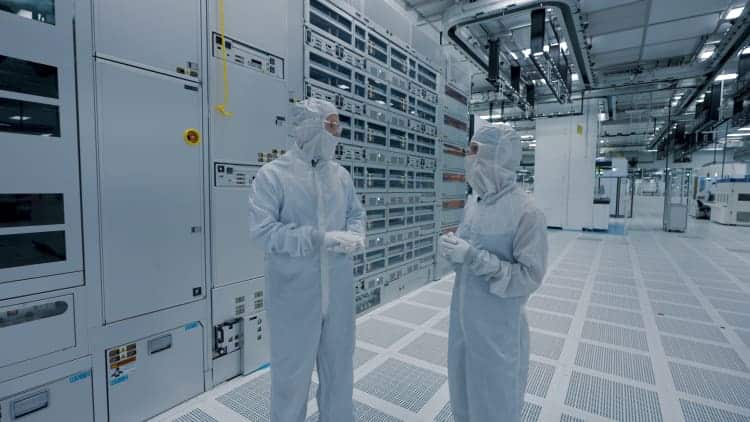Texas Instruments (TI) has officially opened its $60 billion semiconductor facility in Sherman, Texas, marking a major step in U.S. chip manufacturing. Apple is among the first companies to source chips from the site, reinforcing efforts to reduce reliance on overseas suppliers.
The Sherman plant is the first of four new fabs, part of TI’s broader seven-plant expansion across Texas and Utah. The facility focuses on analog and embedded chips that manage power, sensors, and signals—components essential for Apple’s iPhones and other devices.

Why Apple Needs These Chips
Although these chips cost only about 40 cents each, they are critical. An iPhone cannot function without them. By securing a domestic supply, Apple reduces risks tied to tariffs and global supply chain disruptions. The move follows President Trump’s August 2025 announcement of a 100% tariff on chips produced abroad.
That same day, Apple CEO Tim Cook increased the company’s U.S. investment pledge to $600 billion over four years, up from the $500 billion promised earlier. A portion of this investment will support TI’s plants in Sherman, Richardson, and Lehi.
Building a Stronger U.S. Chip Industry
Unlike the cutting-edge processors found in iPhones and Macs, TI’s Sherman facility focuses on older manufacturing nodes between 45 and 130 nanometers. These chips regulate power, read sensors, and process signals—functions that remain indispensable despite their modest profile.
The facility will operate entirely on renewable energy and recycle about half of its massive water consumption. Additionally, TI is working with universities, community colleges, and the military to build a skilled workforce. The company expects the full expansion to create as many as 60,000 jobs in the U.S..
A Practical Alliance
Apple’s partnership with TI demonstrates the importance of securing reliable access to foundational technology. While Apple continues to push the limits of advanced processors, its devices rely heavily on analog chips like those now produced in Sherman. By bringing this production closer to home, Apple not only strengthens its supply chain but also aligns with Washington’s push to revive domestic semiconductor manufacturing.











